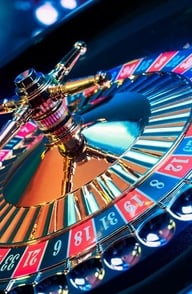Start 14-Day Trial Subscription
*No credit card required

Alcohol's Influence: Exploring its Effects on Gaming Habits
Discover the intriguing intersection of alcohol and gaming in this insightful article. Explore how alcohol consumption influences gaming behavior, with a focus on roulette. Uncover the social dynamics, impaired decision-making, emotional impact, and responsible gaming practices related to alcohol and gaming.
Alcohol has been a companion to social gatherings and entertainment for centuries. In recent years, its relationship with gaming has garnered attention, raising questions about the impact of alcohol on gaming habits. This article delves into the intriguing intersection of alcohol and gaming, shedding light on its effects and potential consequences. Specifically, we will explore how alcohol consumption can influence gaming behavior, with a particular focus on the popular casino game of roulette.
The Social Facet of Gaming and Alcohol
Gaming often involves a social component, whether it's playing with friends at home or engaging in multiplayer online games. Similarly, alcohol has long been associated with socialization and relaxation. When combined, alcohol and gaming can create an immersive and convivial atmosphere. The consumption of alcohol in gaming environments can enhance camaraderie, reduce inhibitions and foster a sense of excitement. However, it is crucial to consider the potential implications of these social dynamics and their effects on gaming behavior.
Impaired Decision-Making and Risk-Taking
Alcohol's influence on decision-making is well-documented. When under the influence, individuals may exhibit impaired judgement and diminished cognitive abilities. In the context of gaming, this can manifest as increased risk-taking behavior. Take, for instance, the table game of roulette, where players place bets on various outcomes. Alcohol-induced impairment can lead to reckless betting choices, such as wagering higher amounts or making irrational bets based on gut feelings rather than strategic thinking. The allure of potential winnings combined with the disinhibiting effects of alcohol can be a recipe for impulsive and unwise decisions.
Emotional State and Gameplay
Alcohol consumption can significantly impact an individual's emotional state, potentially affecting gameplay. For example, if a player becomes upset, angry or frustrated while gaming, alcohol can intensify these negative emotions, leading to impulsive or irrational behavior. In the context of roulette, where the outcome is based on chance, emotions can run high, particularly during losing streaks. Alcohol's influence on emotions can exacerbate frustration or disappointment, potentially pushing individuals to chase losses or make ill-advised bets in an attempt to recover.
Responsible Gaming and Alcohol Consumption
Considering the potential risks associated with alcohol and gaming, responsible gambling practices are essential. Players should establish personal limits for both alcohol consumption and gaming expenditures before engaging in gameplay. It is crucial to only gamble with money that can be comfortably afforded and to avoid chasing losses. Responsible gaming also includes being mindful of emotional states and refraining from playing while upset, angry or depressed. By adopting responsible gaming habits, individuals can mitigate the potential negative effects of alcohol on their gameplay experience.
Concluding Thoughts
In the realm of gaming, alcohol's influence can shape players' habits and decisions. Understanding the effects of alcohol on gaming behavior is crucial for promoting responsible gaming practices and ensuring a safe and enjoyable gaming experience. Whether it's the allure of the roulette table or any other gaming activity, balancing alcohol consumption and gaming with moderation and self-awareness is key to fostering a healthy and responsible approach to this popular form of entertainment.



